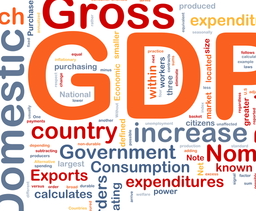
Bulgaria’s economy grew by 2.5 per cent in the first quarter of 2021, the National Statistical Institute (NSI) said in a flash estimate on May 18. In real terms, gross domestic product (GDP) in Bulgaria in January-March was 26.44 billion leva, or 13.52 billion euro.
In annual terms, the economic drop in the first quarter was 1.8 per cent, compared to the same period of 2020. NSI is due to announce preliminary growth figures for the quarter on June 8.
NSI made no reference to the impact of the Covid-19 pandemic, which prompted Bulgaria to declare a State of Emergency on March 13 2020, shutting down parts of its economy as it introduced social distancing and anti-epidemic measures.
The State of Emergency remained in force until May 13 2020, when it was followed by the declaration of an epidemic. That declaration has been extended repeatedly and remains in effect, with restrictions re-introduced in November 2020 to stem the second wave of infections, which have now been eased to a significant degree.
The flash estimate’s seasonally-adjusted data showed domestic consumption rise by 1.6 per cent during the first quarter, and it was 2.6 per cent higher on an annual basis. Gross fixed capital formation rose by 0.3 per cent in January-March, and was 1.2 per cent up compared to the first quarter of 2020.
Exports were a major driver of economic growth, up 6.5 per cent compared to the fourth quarter (but six per cent lower compared to the same period of 2020), while imports rose by 1.4 per cent (0.6 per cent up on an annual basis). The country recorded a trade deficit of 65.5 million leva in the quarter, the equivalent of 0.3 per cent of GDP, NSI said.
Bulgaria was one of 11 EU countries to record economic growth during the first quarter of the year, according to the bloc’s statistics body Eurostat, posting the second highest growth in January-March, behind Romania.
The EU economy as a whole shrank by 0.4 per cent in Q1, while the euro zone economy was down 0.6 per cent. In annual terms, the EU economy contracted by 1.7 per cent compared to the first quarter of 2020, while the euro zone economy was down by 1.8 per cent.
Nine countries recorded negative economic growth in the quarter, according to Eurostat, while seven countries were yet to report first-quarter estimates – Croatia, Estonia, Greece, Ireland, Luxembourg, Malta and Slovenia.
Source: https://sofiaglobe.com/
















